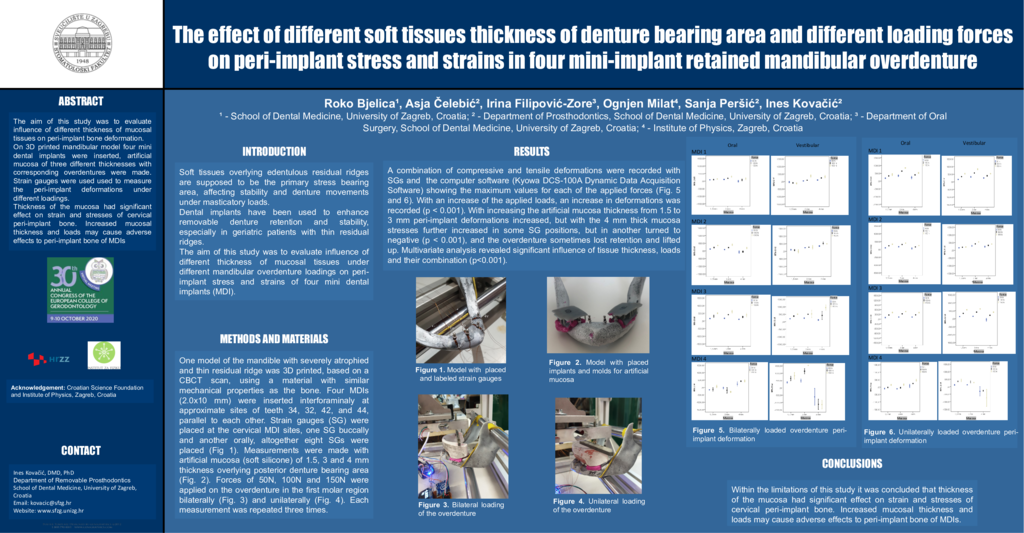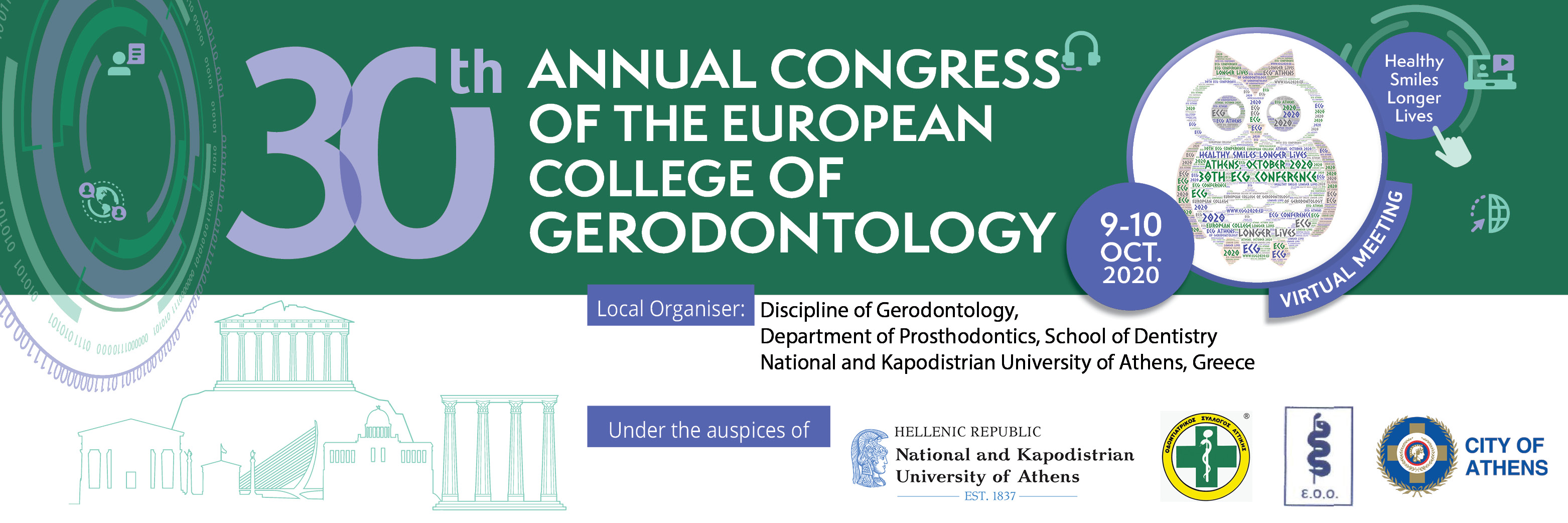Background and aim: Soft tissues overlying edentulous residual ridges are supposed to be the primary stress bearing area, affecting stability and denture movements under masticatory loads. Dental implants have been used to enhance removable denture retention and stability, especially in geriatric patients with thin residual ridges. The aim of this study was to evaluate influence of different thickness of mucosal tissues under different mandibular overdenture loadings on peri-implant stress and strains of four mini-implants (MDI). Methods: One model of the mandible with severely atrophied and thin residual ridge was 3D printed, based on a CBCT scan, using a material with similar mechanical properties as the bone. Four MDIs (2.0x10 mm) were inserted interforaminaly at approximate sites of teeth 34, 32, 42, and 44, parallel to each other. Strain gauges (SG) were placed at the cervical MDI sites, one SG buccally and another orally, altogether eight SGs were placed. Measurements were made with artificial mucosa (soft silicone) of 1.5, 3 and 4 mm thickness overlying posterior denture bearing area. Forces of 50N, 100N and 150N were applied on the overdenture in the first molar region bilaterally and unilaterally. Each measurement was repeated three times. Results: A combination of compressive and tensile deformations were recorded with SGs and the computer software (Kyowa DCS-100A Dynamic Data Acquisition Software) showing the maximum values for each of the applied forces. With an increase of the applied loads, an increase in deformations was recorded (p < 0.001). With increasing the artificial mucosa thickness from 1.5 to 3 mm peri-implant deformations increased, but with the 4 mm thick mucosa stresses further increased in some SG positions, but in another turned to negative (p < 0.001), and the overdenture sometimes lost retention and lifted up. Multivariate analysis revealed significant influence of tissue thickness, loads and their combination (p<0.001). Conclusions: Within the limitations of this study it was concluded that thickness of the mucosa had significant effect on strain and stresses of cervical peri-implant bone. Increased mucosal thickness and loads may cause adverse effects to peri-implant bone of MDIs. Acknowledgement: Croatian Science Foundation and Institute of Physics, Zagreb, Croatia
- 39 views



